- Home
- Harry Harrison
Stars and Stripes Triumphant sas-3
Stars and Stripes Triumphant sas-3 Read online
Stars and Stripes Triumphant
( Stars and Stripes - 3 )
Harry Harrison
In Stars and Stripes Forever, Harry Harrison began the story of the war that never was, but might so easily have happened: the war of the 1860s between the United States of America and the British Empire. It began with an ill-considered seizure of a British ship, escalated with an ill-considered letter to Abraham Lincoln, and continued with an ill-starred invasion of the territory of the USA by an incensed British government. The first modern war — with iron-clad ships, rapid-firing guns, trenches, mass armies and massive casualties, was taking place, not between the industrial northern states and the agricultural southern ones, but between the two great English-speaking nations. Who happened also to be the two most powerful nations on the planet. In the stunning conclusion to this series, the Irish become involved and a most surprising ending is the culmination of the ill-fated war.
Stars and Stripes Triumphant
by Harry Harrison
PROLOGUE
ABRAHAM LINCOLN, PRESIDENT OF THE UNITED STATES
The threat of war, and war itself, has plagued my presidency of these United States of America ever since my inauguration. Instead of a peaceful handing over of presidential power, a continuation of the rule of law with which this country is blessed, it has proved to have been an administration of strife. The dissension began even before my tenancy of the White House, when the Southern states attempted to break their bond with the Federal Union and organize a confederacy. Once this new alliance had fired on the Federal troops in Fort Sumter the die was cast. War was inevitable. There was no way to return to the path of peace. Thus began the Civil War in America that pitted brother against brother in deadly battle. I hesitate to think what the outcome would have been had these hostilities been allowed to run their course; surely it would have meant a nation sundered and brave men dead by the thousands. That is what would have happened in the very least. At worst it would surely have meant a national catastrophe, the destruction of this country as we know it.
But fate intervened. What began as a small incident, the capture of the British mail packet Trent by the American warship the USS San Jacinto, was inflated, blown up out of all proportion by the British government. As president, I would have been happy to release the two Confederate ministers who were taken from the Trent had the British government, Lord Palmerston and Queen Victoria in particular, shown any understanding of our position. Despite all of our efforts at peacemaking, they persisted in their intransigence. My government could not, would not, give in to threats and imprecations at the highest level issued by a foreign power. While we in America worked for a peaceful solution to our national differences, they appeared to want nothing less than a headlong confrontation. While my government was locked in battle with the Southern secessionists, we still had to deal with this militant foreign power.
Alas, international peace was not to be. Defying all logic, the forces of the mighty British Empire invaded this sovereign land.
The world knows what happened next. With our nation threatened from the outside, the Civil War, the battle between our government and the seceding states, was ended. The result was that a reunited United States fought back against these invaders, the common enemy. It was not an easy war — none are — but in the end the strength of our common cause was such that the invaders were repulsed and hurled back from our shores. Disheartened by our victories, the enemy was sent packing as well from Canada, when that nation declared its liberty from colonial rule.
Throughout this war I learned to depend on General William Tecumseh Sherman to fight and to win. He was respected and admired by our Northern troops, and it became a matter of the greatest importance that the officers of the Southern army regarded him highly as well. They appreciated his knowledge and attitude toward the South, as well as his warrior skills — respected the man so well that they were willing to serve under him in the battle against our common enemy.
Finally that invasion and war was ended and we were at peace. Or were we? Unhappily this was not to be the end of our struggle. The Lion of the British Empire had lost battles before — but had never lost a war. Try as hard as they could, it appeared that the British simply could not swallow this defeat. Despite all attempts at sweet reason upon our part, they persisted in their bellicosity to the extent that they attempted another invasion of our country, this time through the war-torn land of Mexico.
My generals, now more experienced and wise in the ways of war, devised a counterplan to contain this threat. Instead of our armies being bogged down in a war of attrition on our borders, it was decided to take the war closer to the enemy shores. Thus the American invasion of Ireland began. The proposed enemy invasion from Mexico was quickly terminated as the British realized that their forces were needed closer to home.
I am proud to say that not only did our forces prevail against the enemy in Ireland, but in fact succeeded in liberating that much-stricken nation.
I pray that this national rivalry between our two great countries will now end. These last months my mind has been occupied with domestic matters, not international concerns. During the past August of the year 1864, the Democratic National Congress nominated Judah P. Benjamin as their presidential candidate: a worthy man, without whose unstinting aid peace and reconciliation in the South would not have been attained. It was my pleasure to be nominated by the Republican Party for a second term, with Andrew Johnston of Tennessee standing for vice-president at my side.
It was a hard-fought election. I regret to say that my name is still anathema in parts of the South and the voters there voted against me rather than for the Democratic candidate for president. However, the soldiers — both those recently discharged and those still in the service — looked upon me as their commander in chief, and their votes carried the day.
But that is in the past. I began my second term in March of this year, 1865. Now it is May and Washington City was never more beautiful, with green leaves and blossoms everywhere. America wishes only peace in the world, but has perhaps become too used to war during the past four years. To provide weapons for our armies and iron ships for our fleets, a growing and successful manufacturing economy has evolved, one that we never knew before in peacetime.
I would be the happiest man in the world if I could preside peacefully over this prosperous land, to oversee that our cannons of war were beaten into the plowshares of peace. Where our native manufacturing genius has succeeded in wartime, it could surely succeed as well in a time of peace.
But will peace prevail? Our British cousins remain bellicose. They still take affront at being expelled from Ireland, after all their centuries of rule. They will not face the fact that they are gone from that green island, and gone for good. Their politicians still make warlike speeches and rattle their sabers in their scabbards. To counter this British exercise in ill will, our politicians are now busy on the European continent seeking trade agreements and attempting to strengthen our peaceful ties.
Will peace and sanity prevail? Can another disastrous war be averted?
I can only pray with all my strength that it will.
BOOK ONE
A JOURNEY ABROAD
BRUSSELS, BELGIUM, JUNE 1865
The floor-to-ceiling windows were open to the warm sunshine, admitting the background hum of the busy Belgian capital. They also admitted the effluvia of horse manure, a smell unnoticed by anyone who had dwelled for any time in a large city. President Abraham Lincoln was seated on an ornate Louis XV couch, reading the document that Ambassador Pierce had just given him. He looked up when there was a tap on the hall door.
“I’ll see who it i
s, Mr. President,” Pierce said. He strutted a bit when he walked; this was his first political appointment and he was immensely proud of it. He had been a Wall Street banker, an old business associate of Lincoln’s from the same law firm, until the President had nominated him for this position. Secretly he knew that he had been selected more for his knowledge of French, and his intimacy with international commerce, than for any political skills. Nevertheless it was still quite an honor. He held the door wide so that the two general officers could come in. Lincoln looked over the tops of his reading glasses and acknowledged their salutes.
“Sashes, swords, and ribbons, gentlemen, as well as festoons of gold braid. We are quite elegant today.”
“Seemed appropriate for this morning’s presentation at court,” General Sherman said. “We were just informed about it.”
“As was I,” Lincoln said. “I was also told that it was most important, and was told as well that they particularly requested that you and General Grant be present.”
“Did they say why, sir?” Grant asked.
“Not directly. But Pierce here, who has made many important contacts since his appointment, took a senior Belgian civil servant aside and managed to elicit from him the fact that the presentation of some honors would be involved.”
“They will surely be a fine sight,” Pierce said. “It seems that the smaller the country, the bigger the medals are. And I was assured by the same official that the past war between our country and the British would not be involved in this presentation. It seems that Queen Victoria is very touchy on that subject, and King Leopold, who, after all, is her favorite uncle and constant correspondent, has no desire to offend her on that score. The awards will be for heroic actions that you gentlemen engaged in during our recent civil war.”
Grant smiled as he peered down at the plain blue cloth of his infantryman’s uniform. “It could do with a bit of smartening up.”
They all looked up as Gustavus Fox, the Assistant Secretary of the Navy, let himself in through a connecting door. He was a man who kept a very low public profile; only at the very highest levels of government was it known that he headed America’s secret service. He nodded at them and held up a sheaf of papers.
“I hope that I am not interrupting, but is there time for a briefing, Mr. President?” he asked. “Some new and urgent information has just been made known to me.”
Ambassador Pierce grunted slightly as he pulled his fob watch from the pocket in his well-rounded waistcoat. “More than enough time, I do believe. The carriages are not due to arrive here until noon.”
“I hope that with a bit of luck you are bringing me some good news, Gus,” the President said hopefully. “There never seems to be much of that.”
“Well, I am forced to admit that it is somewhat of a mixed bag, sir. Firstly, just two nights ago the British raided the harbor at the port of Kingstown in Ireland. This is the ferry port that is quite close to Dublin. They landed troops, and the attackers burned the city hall, as well as some of the harbor installations, then finished it all off by seizing and setting fire to some ships that were tied up there. The Irish believe that it was a terror raid, pure and simple, since it accomplished nothing but wanton destruction. It apparently was a clear reminder to the Irish that the British are still out there. As they left they exchanged shots with an Irish revenue cutter, but retreated back to sea before the troops from Dublin could arrive.”
Lincoln shook his head with great unhappiness. “I feel that the timing of this action is deliberate, that there is no coincidence here since this intrusion occurred just as our delegation was arriving in Belgium.”
“I concur, Mr. President. It is obviously a simple message to us,” Sherman said, his face cold, his pale eyes deadly. “They are telling us that they can strike at Ireland, whenever and wherever they please. And they will let no international conference stand in their way. It appears that their losses and defeats in America and Ireland have taught them nothing.”
“I am afraid that yours is the most valid interpretation,” Lincoln said with a great weariness. “But you said it was a mixed bag, Gus. Is there no good news in there? Can you pull nothing from your bundle that will bring cheer to a weary old man?”
Gus smiled and shuffled through the papers, drew out one sheet, and passed it over to the President.
“This came in on the navy packet that tied up in Ostend this morning. It is a personal report made to your cabinet by Mr. John Stuart Mill. They have forwarded this copy to you. If you will look there, you will see that the Secretary of the Treasury has penned a personal note to you on the first page.”
Lincoln nodded and read the opening aloud. “Yes, indeed, this will surely be of interest to all of you here. ‘Mr. President. You will of course wish to acquaint yourself personally with the contents of this most valuable economic report. But permit me to sum it up in its entirety. I do believe that Mr. Mill’s conclusions are not only very accurate, but inescapable as well. The American economy is booming, as it never has in the past. Our factories are working flat out, both in the industrialized North and in the new works that have been constructed in the South. It is evident now that everyone who wants a job is hard at work. The reconstruction and modernization of the railroads is almost complete. It is obvious what has happened. Due to the exigencies of war this country has been involuntarily changed from being a basically agrarian economy to one that is rich with industry. Exports are rising, the railroads are being modernized and extended, while shipbuilding is at an all-time record high. All in all, Mr. Mill is most enthusiastic about this country’s economic future. As am I. Yours faithfully, Salmon P. Chase.’ ”
Lincoln skipped through the report. “Most interesting, gentlemen. Mr. Mill appears to have been comparing production figures right around the world. Great Britain, the powerhouse of industry ever since the industrial revolution, had always led all of the other countries in strength and output. But no more! He believes that when the final figures are compared at the end of the year, America will outstrip Britain on all fronts.”
There were murmured agreements, and when they died away Fox spoke again.
“With this inspiring news, Mr. President, do you think you can spare a few moments to meet with a delegation?”
“Delegation? I made no appointments.”
“They arrived at dawn this morning. I had the pleasure of their company at breakfast. It is President Jeremiah O’Donovan Rossa of Ireland. With him is his vice-president, Isaac Butt — accompanying them is General Thomas Meagher. They say it is a matter of some urgency, and they hope that you will grant them a few moments of your time. They were — how shall I say it? — greatly upset. I think it would be prudent if you could make the time to see them now.”
“But you say that Tom Meagher is here? The last I heard he was stationed at Fort Bragg.”
“No longer. Some months ago he was granted indefinite leave to go to Ireland, where he is advising the Irish army.”
“We are pressed for time, Mr. President…” Pierce said, looking at his watch again.
Sherman’s voice was icily cold. “We are not too pressed, I sincerely hope, to see the elected President of Ireland — and with him an old comrade who, in addition to his victories in Ireland, has fought long and hard for our country.”
“Yes, of course, we must see them,” Lincoln said. “By all means show them in.”
“Shall we leave?” Grant asked.
“No — with Meagher here, this matter must surely be of some importance to the military.”
Lincoln stepped forward when the three men came in and took Rossa’s hand. “We haven’t met since your inauguration in Dublin,” he said warmly. “I must say that it was quite an occasion, as well as being one that I will never forget.”
“Nor shall I, Mr. President — for you speak the very truth. Until the day I die I shall always remember with great warmth the events of that gorgeous day. If you will recall, it was the first day of a springtime that held out s
uch great promise for our future. That promise is indeed being fulfilled. But, as you know, there have been many problems as well. There has been so much water under the bridge since that blessed occasion. But excuse me, sir, I digress. You remember Vice-President Butt?”
“Of course. I speak only the truth when I say, Mr. Butt, that yours, and the President’s, is a most grave and important labor,” Lincoln said as he took the Vice-President’s hand. “I do marvel every day at the glowing reports I read of your unifying and modernization of Ireland.”
“It has been a mighty task indeed — but well worth every effort,” Rossa said. His expression darkened as he went on. “A task that has been made far more difficult by the continuing harassment by the enemy from the outside. Goodness knows that I, and the people of Ireland, have enough black memories. Our history has indeed been a long and dark one ever since the day when English troops first set foot in our poor country. Now, I am most sure that I speak for every man in the country when I say let bygones be bygones. Enough of painful memories and ancient crimes. We Irish tend to live too much in the past, and it is high time that we were done with that practice. The past is done with and shall not return. We must turn our backs on it and instead turn our faces toward the glowing sun of the future—”
“But they will not let us!” Isaac Butt broke in, cracking his knuckles resoundingly, so carried away was he by the strength of his emotions. “The recent raid on Kingstown was but a pinprick among our greater sorrows. Every day — every hour — sees its like. There are constant landings in remote Irish seaports, where innocent Irishmen are killed and their small craft, their only possessions, burned. Ships are stopped at sea as well, stopped and searched, and many times they have their cargo confiscated. It is as though we have a demon on our backs that cannot be removed, a curse from hell that cannot be lifted. The war was well won — yet it will not end. The British are indeed our demon possessor!”

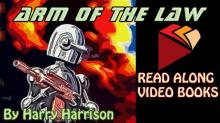 Arm of the Law
Arm of the Law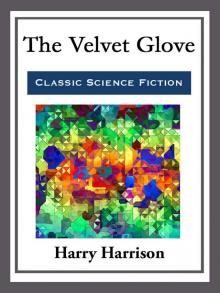 The Velvet Glove
The Velvet Glove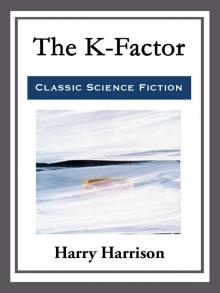 The K-Factor
The K-Factor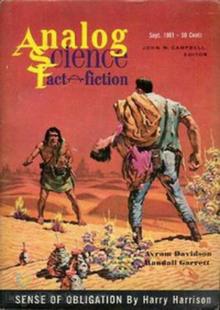 Sense of Obligation
Sense of Obligation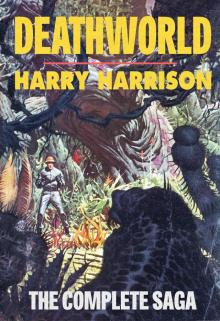 Deathworld: The Complete Saga
Deathworld: The Complete Saga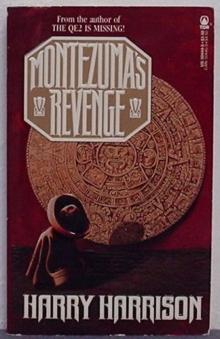 Montezuma's Revenge
Montezuma's Revenge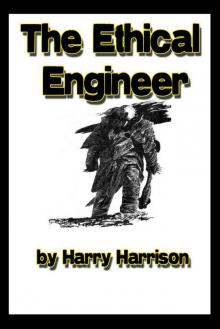 The Ethical Engineer
The Ethical Engineer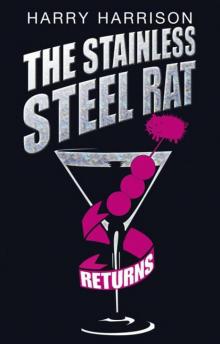 The Stainless Steel Rat Returns
The Stainless Steel Rat Returns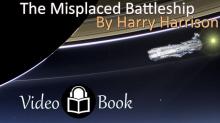 The Misplaced Battleship
The Misplaced Battleship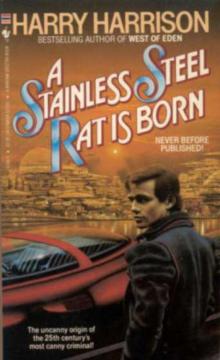 The Stainless Steel Rat is Born
The Stainless Steel Rat is Born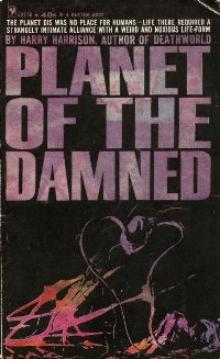 Planet of the Damned bb-1
Planet of the Damned bb-1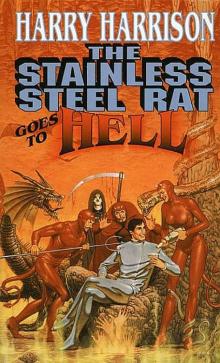 The Stainless Steel Rat Goes to Hell ssr-10
The Stainless Steel Rat Goes to Hell ssr-10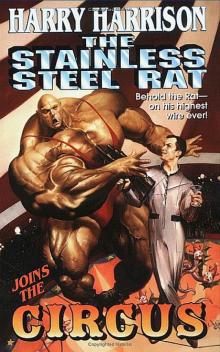 The Stainless Steel Rat Joins the Circus ssr-11
The Stainless Steel Rat Joins the Circus ssr-11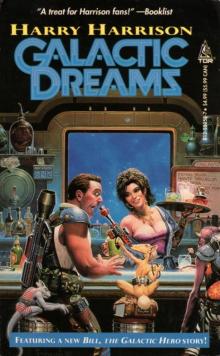 Galactic Dreams
Galactic Dreams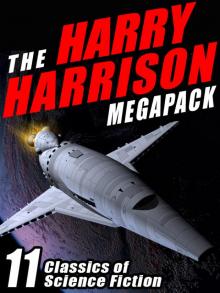 The Harry Harrison Megapack
The Harry Harrison Megapack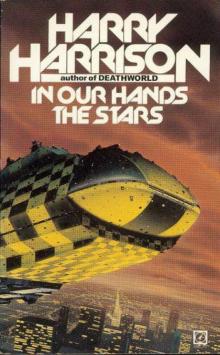 In Our Hands the Stars
In Our Hands the Stars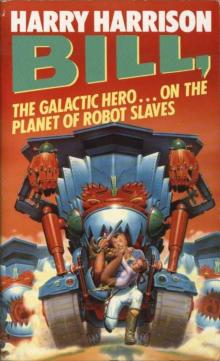 On the Planet of Robot Slaves
On the Planet of Robot Slaves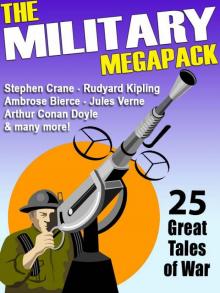 The Military Megapack
The Military Megapack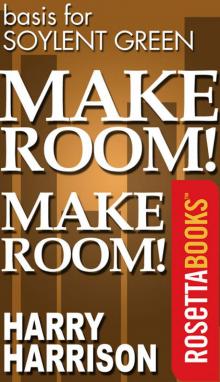 Make Room! Make Room!
Make Room! Make Room!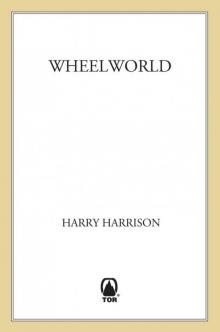 Wheelworld
Wheelworld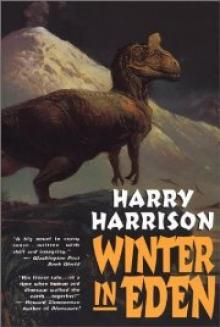 Winter in Eden e-2
Winter in Eden e-2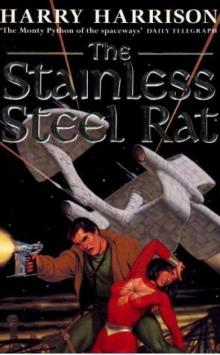 The Stainless Steel Rat
The Stainless Steel Rat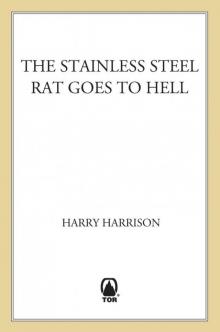 The Stainless Steel Rat Goes to Hell
The Stainless Steel Rat Goes to Hell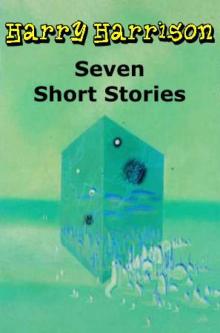 Harry Harrison Short Stoies
Harry Harrison Short Stoies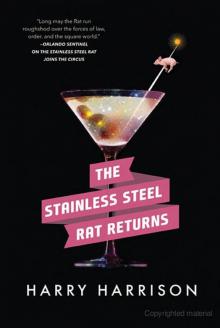 Stainless Steel Rat 11: The Stainless Steel Rat Returns
Stainless Steel Rat 11: The Stainless Steel Rat Returns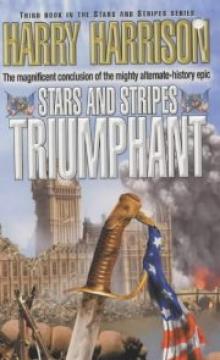 Stars and Stripes Triumphant sas-3
Stars and Stripes Triumphant sas-3 West of Eden
West of Eden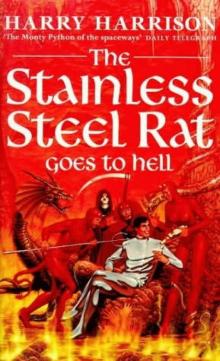 The Stainless Steel Rat Go's To Hell
The Stainless Steel Rat Go's To Hell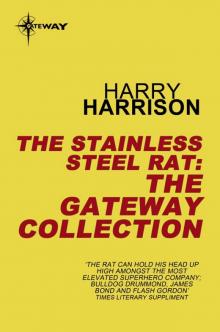 The Stainless Steel Rat eBook Collection
The Stainless Steel Rat eBook Collection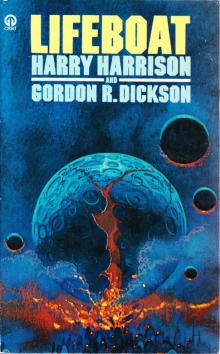 Lifeboat
Lifeboat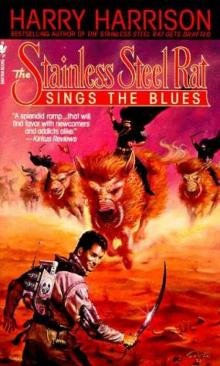 The Stainless Steel Rat Sings the Blues
The Stainless Steel Rat Sings the Blues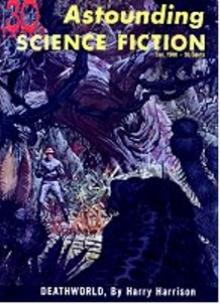 Deathworld tds-1
Deathworld tds-1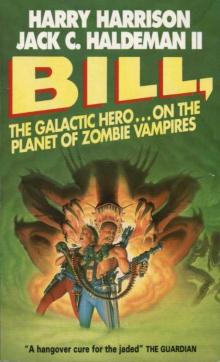 On the Planet of Zombie Vampires
On the Planet of Zombie Vampires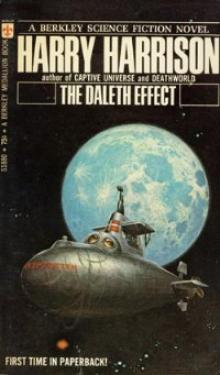 The Daleth Effect
The Daleth Effect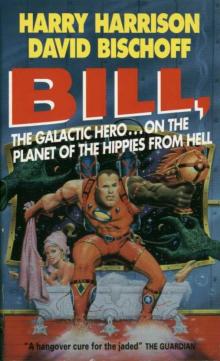 On The Planet Of The Hippies From Hell
On The Planet Of The Hippies From Hell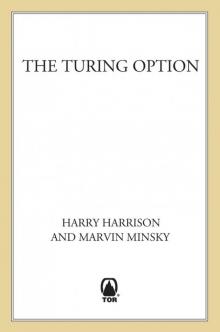 The Turing Option
The Turing Option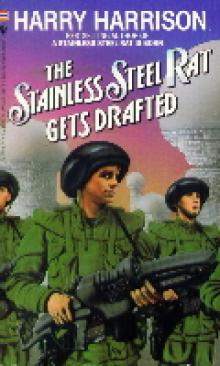 The Stainless Steel Rat Gets Drafted
The Stainless Steel Rat Gets Drafted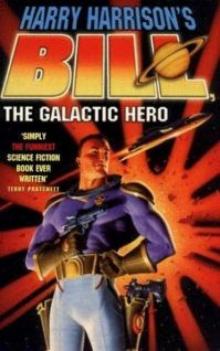 Bill, the Galactic Hero btgh-1
Bill, the Galactic Hero btgh-1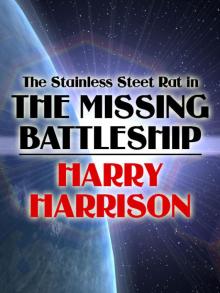 The Stainless Steel Rat in The Missing Battleship
The Stainless Steel Rat in The Missing Battleship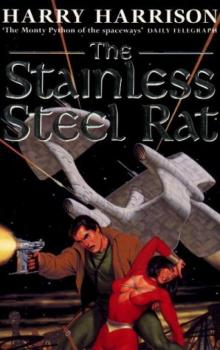 The Stainless Steel Rat ssr-1
The Stainless Steel Rat ssr-1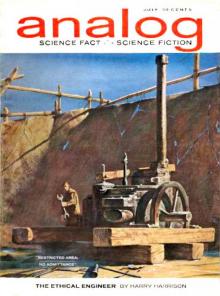 The Ethical Engineer (the deathworld series)
The Ethical Engineer (the deathworld series)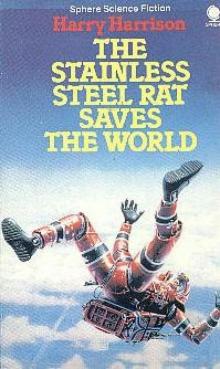 The Stainless Steel Rat Saves the World ssr-3
The Stainless Steel Rat Saves the World ssr-3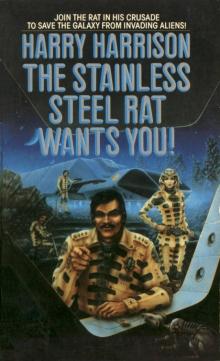 The Stainless Steel Rat Wants You
The Stainless Steel Rat Wants You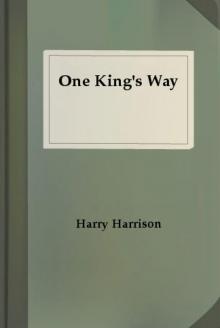 One King's Way thatc-2
One King's Way thatc-2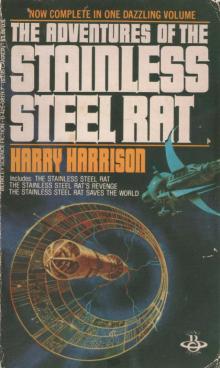 The Stainless Steel Rat Saves The World
The Stainless Steel Rat Saves The World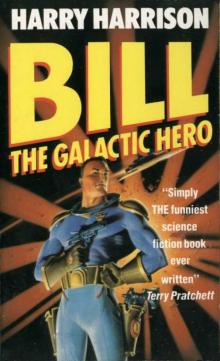 Bill, the Galactic Hero
Bill, the Galactic Hero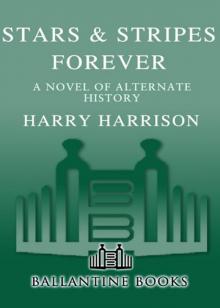 Stars & Stripes Forever
Stars & Stripes Forever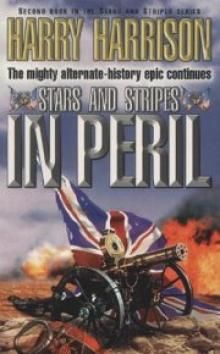 Stars and Stripes In Peril sas-2
Stars and Stripes In Peril sas-2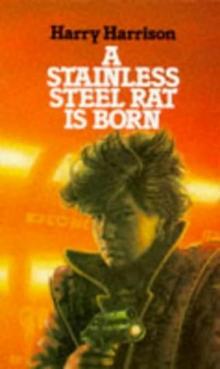 A Stainless Steel Rat Is Born ssr-6
A Stainless Steel Rat Is Born ssr-6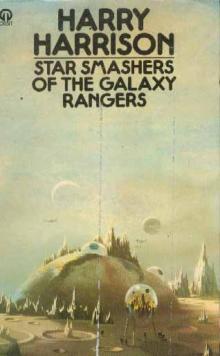 Star Smashers of the Galaxy Rangers
Star Smashers of the Galaxy Rangers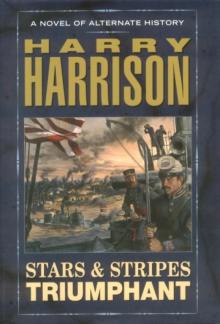 Stars & Stripes Triumphant
Stars & Stripes Triumphant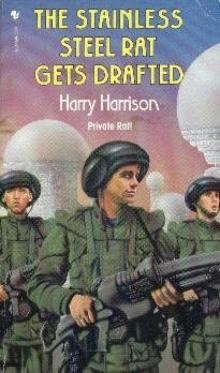 The Stainless Steel Rat Gets Drafted ssr-7
The Stainless Steel Rat Gets Drafted ssr-7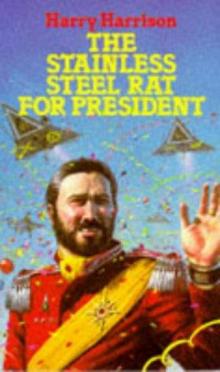 The Stainless Steel Rat for President ssr-5
The Stainless Steel Rat for President ssr-5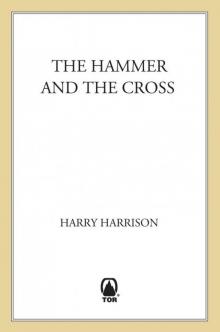 The Hammer & the Cross
The Hammer & the Cross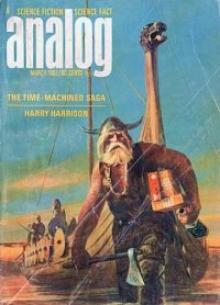 The Technicolor Time Machine
The Technicolor Time Machine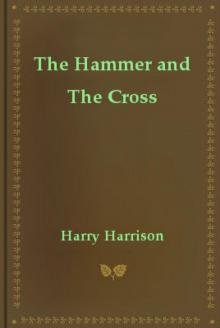 The Hammer and The Cross thatc-1
The Hammer and The Cross thatc-1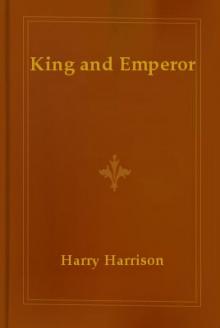 King and Emperor thatc-3
King and Emperor thatc-3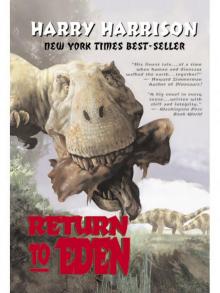 Return to Eden
Return to Eden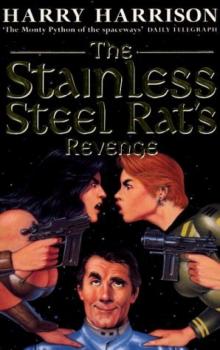 The Stainless Steel Rat’s Revenge ssr-2
The Stainless Steel Rat’s Revenge ssr-2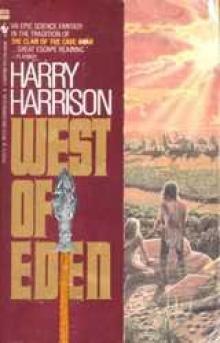 West of Eden e-1
West of Eden e-1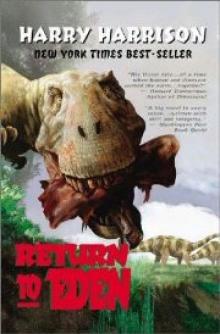 Return to Eden e-3
Return to Eden e-3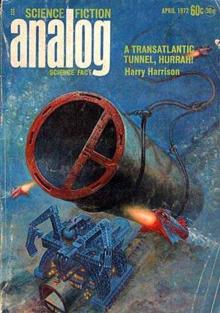 A Transatlantic Tunnel, Hurrah!
A Transatlantic Tunnel, Hurrah!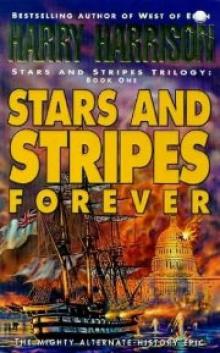 Stars and Stripes Forever sas-1
Stars and Stripes Forever sas-1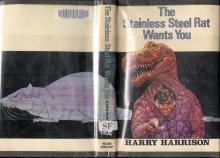 The Stainless Steel Rat Wants You ssr-4
The Stainless Steel Rat Wants You ssr-4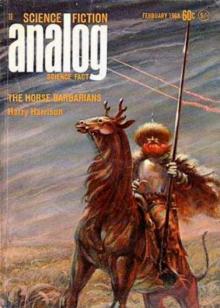 The Horse Barbarians tds-3
The Horse Barbarians tds-3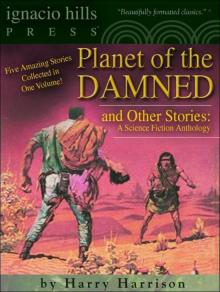 Planet of the Damned and Other Stories: A Science Fiction Anthology (Five Books in One Volume!)
Planet of the Damned and Other Stories: A Science Fiction Anthology (Five Books in One Volume!)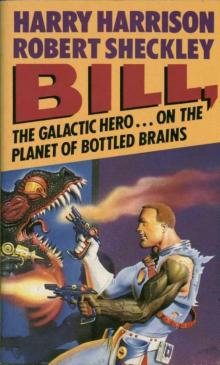 On the Planet of Bottled Brains
On the Planet of Bottled Brains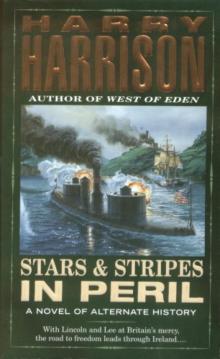 Stars And Stripes In Peril
Stars And Stripes In Peril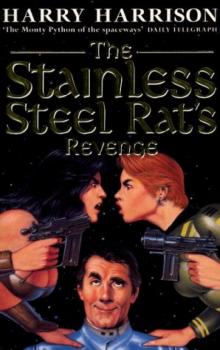 The Stainless Steel Rat's Revenge
The Stainless Steel Rat's Revenge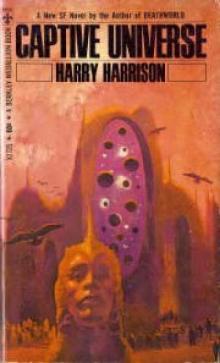 Captive Universe
Captive Universe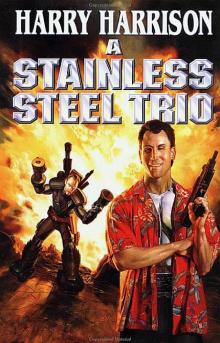 The Stainless Steell Rat Sings the Blues ssr-8
The Stainless Steell Rat Sings the Blues ssr-8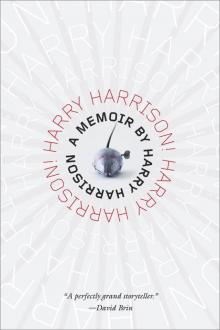 Harry Harrison! Harry Harrison!
Harry Harrison! Harry Harrison!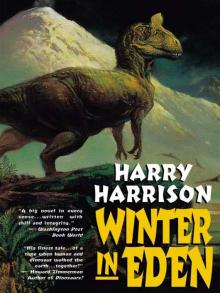 Winter in Eden
Winter in Eden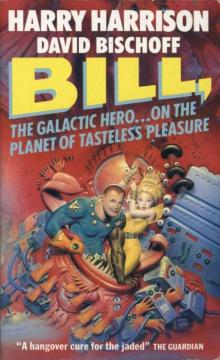 On the Planet of Tasteless Pleasures
On the Planet of Tasteless Pleasures